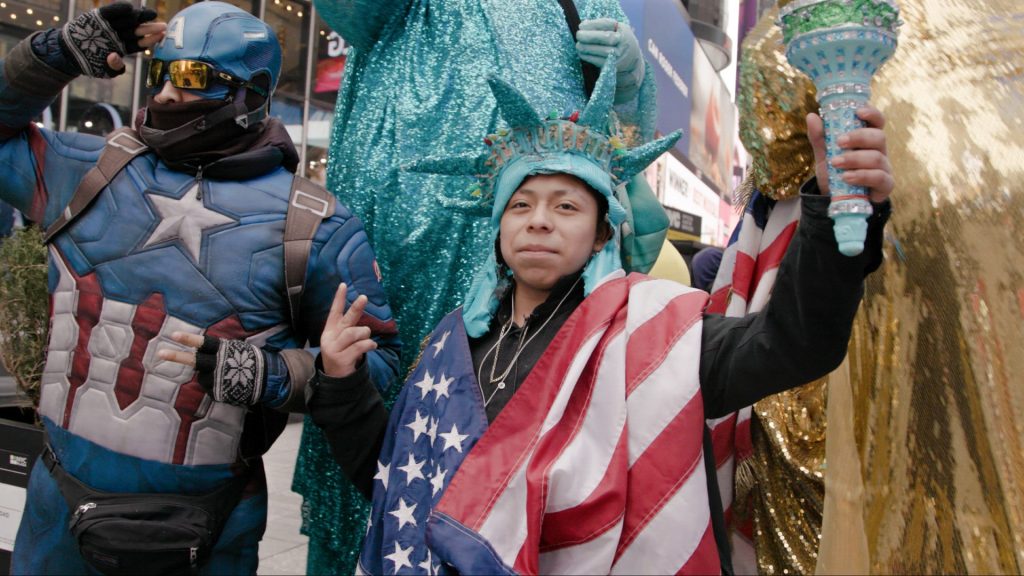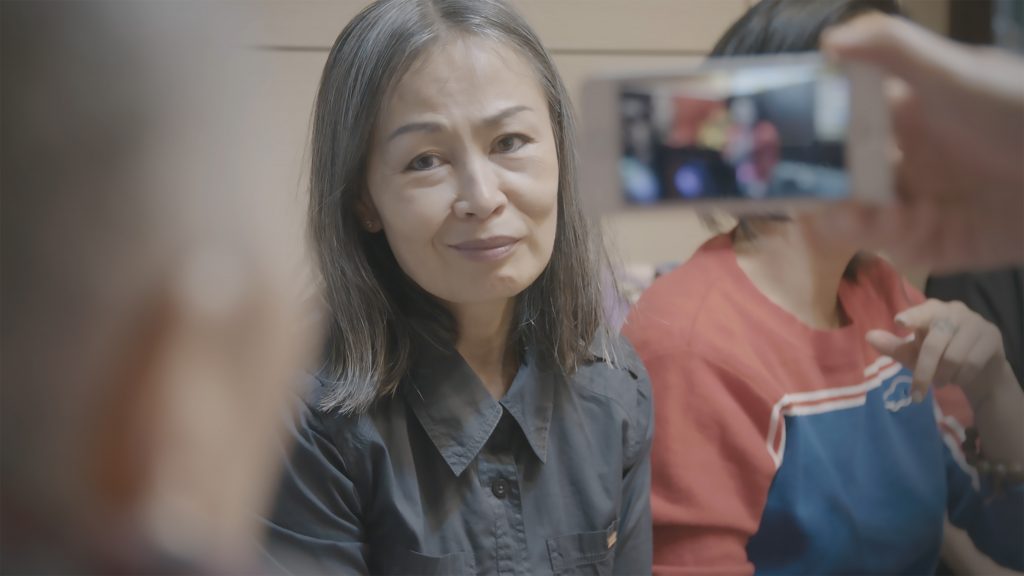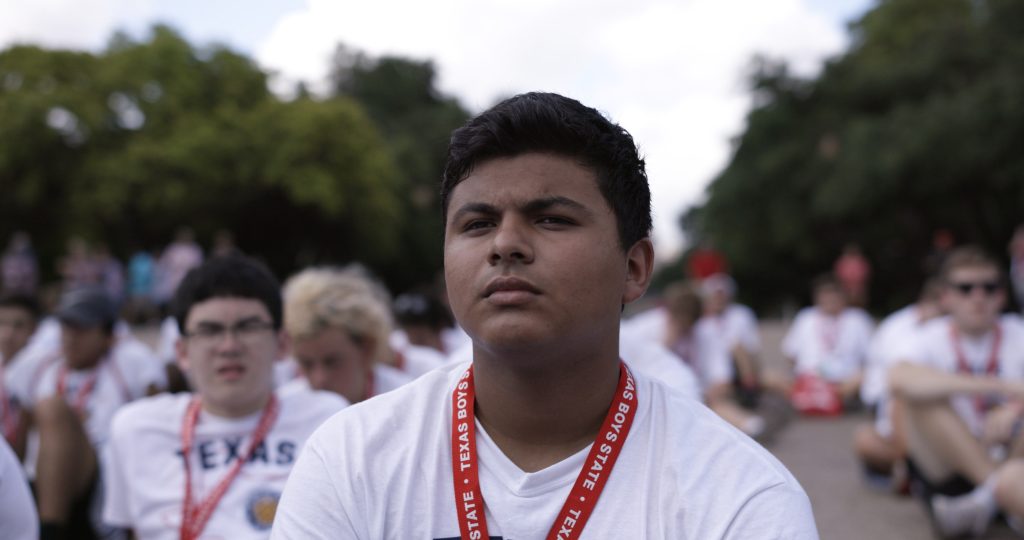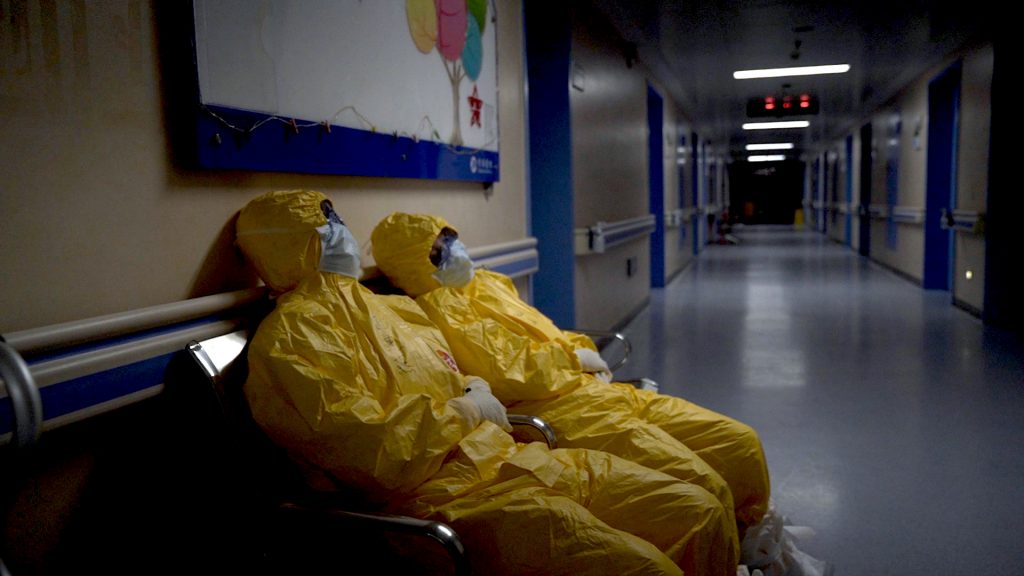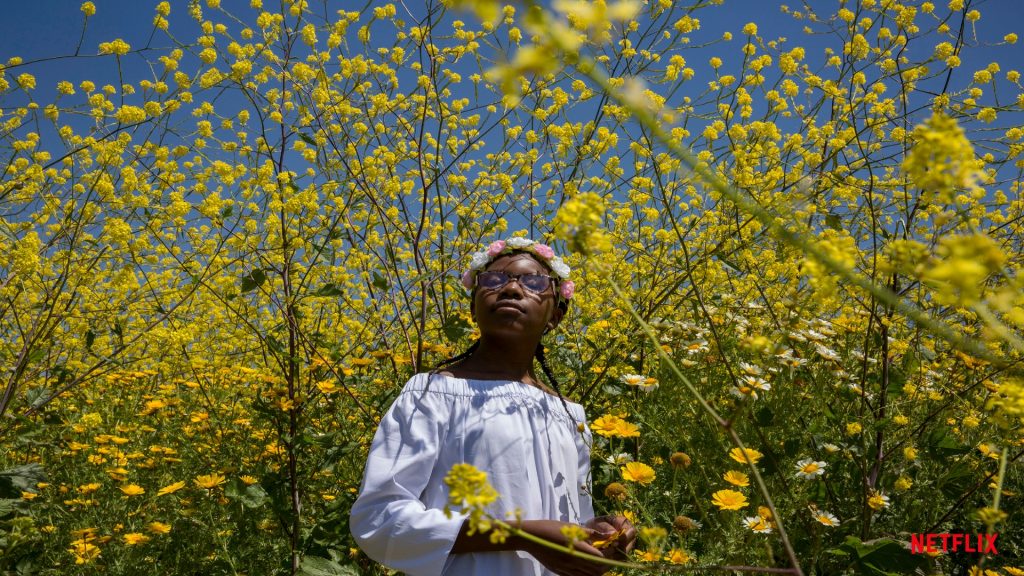November 24, 2020
by Carla Hay
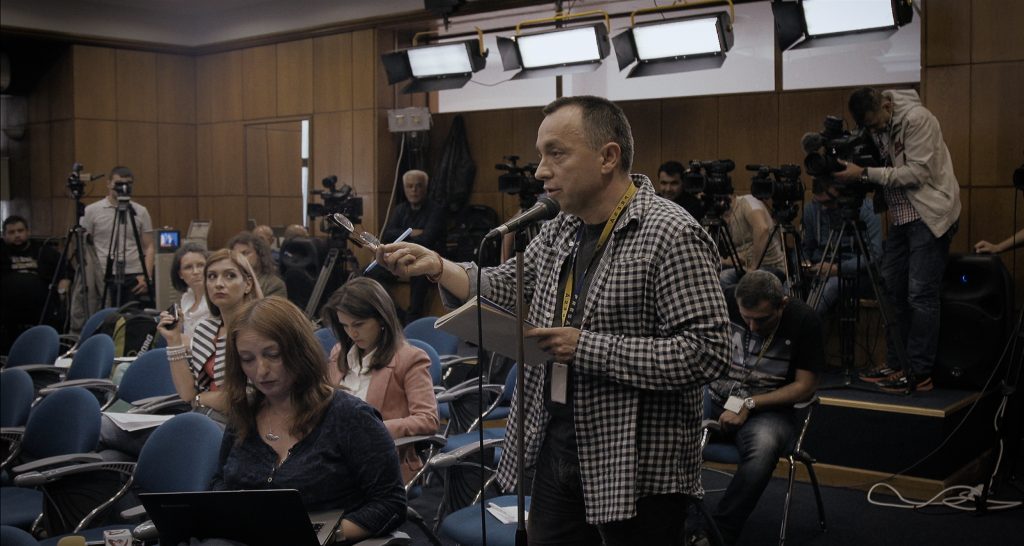
Directed by Alexander Nanau
Romanian with subtitles
Culture Representation: Taking place in Romania, the documentary “Collective” features an all-white group of people (journalists, bureaucrats, politicians, and parents of burn victims) discussing the aftermath of a deadly nightclub fire in 2015 that resulted in numerous deaths, injuries, and the exposing of widespread corruption in the Romanian health-care industry.
Culture Clash: The documentary follows some intrepid reporters who uncover the corruption and the tumultuous transition when a new minister of health takes over in Romania.
Culture Audience: “Collective” will appeal primarily to people who are interested in documentaries that are about health care, corruption and freedom of the press.

In 2015, a tragic nightclub fire in Bucharest, Romania, became the catalyst for a news investigation that would turn the Romanian health-care industry upside down. The investigation led to the exposure of widespread corruption, public outrage, and a controversial leadership change in Romania’s health-care industry. The gripping documentary “Collective” gives an inside look at how it all happened (directed by Alexander Nanau), but it also serves as a warning that the corruption isn’t going away just because some of it was uncovered.
The Colectiv nightclub was an underground club for rock music that was frequented by mostly young people. When the fire happened at Colectiv (the Romanian word for “collective”) in 2015, many people were trapped in the venue, which did not having adequate fire exists. The documentary includes a disturbing video taken inside the nightclub as the fire spread.
In the immediate aftermath of the fire, 27 people died and 180 people were injured. However, over the next four months, 37 more victims from the fire died in hospitals. While all of this was happening, officials would routinely give press conference and interviews assuring the fire victims’ loved ones and the general public that these patients were getting the best possible care. What happened to cause these additional deaths?
During the course of the movie, investigative journalists—led by Catalin Tolontan of the daily newspaper Gazeta Sporturilor (Sports Gazette)—found out that these burn victims weren’t dying from their burn wounds but were actually dying from infections brought on by unsanitary hospitals. In addition, medicine and disinfectants were being deliberately diluted. The business leader of Hexi Pharma, the company at the center of the scandal, then mysteriously disappears. And more lies and corruption are uncovered on a massive scale that goes behind hospitals in Bucharest.
The scandal has been widely reported in Romania and in other countries, but for people who don’t know about it, some of the details that are in “Collective” won’t be revealed in this review. However, it’s enough to say that the movie presents a well-rounded story that shows perspectives from victims of the fire, their family members, journalists, bureaucrats and politicians who are connected in some way to this multifaceted tragedy.
During the course of making this documentary, Romanian health minister Vlad Voiculescu resigned. (He was in the position from May to December 2016.) And then, physician Patriciu Achimaș-Cadariu became Romania’s health minister and experienced a lot of public backlash after he tried to reform the system and hold the Romanian health-care system up to higher standards. Achimaș-Cadariu was also vilified by certain media outlets that accused him of causing public hysteria over the Romanian health-care system.
Why the public backlash against Achimaș-Cadariu? Because he believed that many Romanian hospitals were ill-equipped and too unsanitary for certain medical procedures, such as transplant surgery. Many people who needed these medical procedures were inconvenienced and horrified by the thought of possibly having to go to another country (such as Germany) to get the procedures done.
“Collective” takes a hard look at the power of propaganda and how much people might believe what leaders say if the leaders say it often enough. After being told for years that Romanian hospitals were safe and among the best in Europe, a large percentage of the Romanian public refused to believe that their hospitals actually had dangerous levels of unsanitary conditions. Unfortunately, it took the Colectiv nightclub fire and the large number of the fire victims who were hospitalized at once for it to be discovered that people who should’ve recovered from their injuries were actually placed in lethal situations in the hospitals.
One thing that might surprise viewers of “Collective” is how much access the filmmakers had to closed-door meetings with Achimaș-Cadariu. This isn’t the kind of investigative documentary that shows a lot of loud protests in the streets to call for change and reform. Nor are there any dramatic courtroom scenes. Instead, there are many scenes of quiet discussions in conference rooms to give testimonials about corruption and to advocate for reform in the Romanian health-care system.
In the production notes for “Collective,” director Nanau explains how he got to film Achimaș-Cadariu in such an unrestricted way: “So he had the courage to let me film him. And we made this deal that I would handle sound and camera [myself] while at the Ministry—and in return I could film everything and he would not tell me ‘shut the camera off.'”
Nanau filmed the documentary cinéma vérité-style, so there are no interviews talking heads or voiceovers as distractions. It’s really the best way to film this type of subject matter because it allows viewers to better see all the tension as events are unfolding and let viewers judge for themselves who is more trustworthy than others.
Interviews with talking heads tend to be about pundits giving their hindsight take on a situation where they might exaggerate how much they really knew or how effective they were as the situation was happening. People often like to rewrite history when they tell their version of events. But there’s really no room to do that in a documentary that doesn’t do interviews with talking heads.
And although this health-care scandal in Romania is a tangled web of corruption, “Collective” doesn’t over-stuff the movie with too many people. It keeps things simple by focusing on some of the most impactful participants in this saga. Two of the most memorable “whistleblowers” are Colectiv fire survivor Tedy Ursuleanu (whose burn injuries resulted in some of her fingers being removed) and Camelia Roiu, an anesthetist at Bucharest Burn Hospital who came forward about the real causes of death of the Colectiv fire patients who died in the months after the fire.
In the “Collective” production notes, director Nanau says he doesn’t think it’s a coincidence that most of the whistleblowers are women: “In Romania, women have evolved a lot more than men in society. I think they have a higher moral standard. And they have more courage.”
“Collective” shows that courage sometimes means uncovering disturbing truths about a system, such as health care, that has the power to determine if people will live or die. It’s a movie that will make people wonder about these situations not just in Romania but also in other countries. And it’s a sobering reminder that many innocent people’s lives were lost because certain people were invested in keeping a corrupt system in place.
Magnolia Pictures released “Collective” in select U.S. cinemas, digital and VOD on November 20, 2020.



